|
Brought to you by Dairy's Professional Development Organization®
|
|
 |
|
 |
Troy Schneider |
ADDRESS CHALLENGES TO FARM SUCCESSION PLANNING. Each farm is different, but there are a number of common hurdles that many families share in developing plans for ownership and management succession. If not addressed, these hurdles can damage not only business, but family relationships as well. Attorney Troy Schneider will discuss the most common problems farm families face in succession planning and will offer practical methods to manage and resolve challenges with success in the first part of the World Class Webinar series: "Farm & Family Business Transition" to be held on Wednesday, Nov. 9 at 12pm CDT. The second session is titled "Your Farm Succession Plan is a Living Document," and will be led by Attorney George Twohig on Wed. Dec. 7.
Click here for more information. Register online or call PDPW at 800-947-7379.
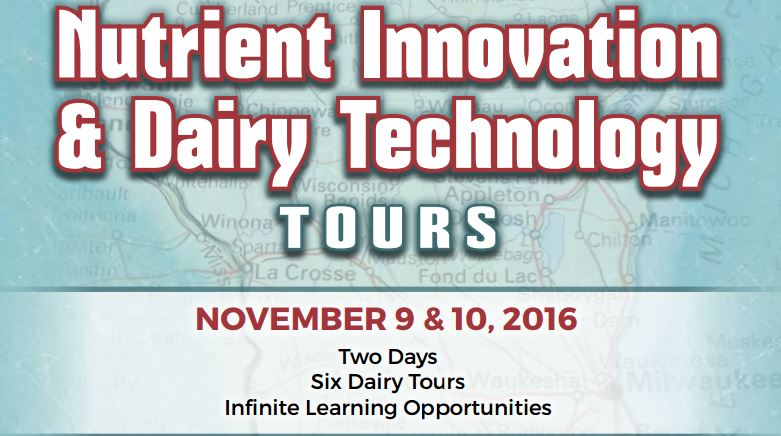 ALL ABOARD FOR NUTRIENT INNOVATION & TECHNOLOGY TOURS. ALL ABOARD FOR NUTRIENT INNOVATION & TECHNOLOGY TOURS. Don't miss your opportunity to tour six state-of-the-art dairies and see firsthand new technologies in water purification, manure and sand separation, nutrient capture systems, methane digesters, rotary parlors, soil mapping, recycled bedding methods and more. Tours will be held on November 9 and 10, departing and returning each day from Fox Valley Technical College in Chilton, Wisconsin. Registration is available for one or two days. Fees cover tours, charter bus transportation, refreshments and lunch.
Click here to see a profile of each of the dairy tour stops and to register online. Call PDPW at 800-947-7379 with questions.
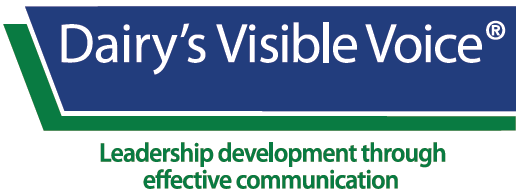 BUILD COMMUNICATIONS AND LEADERSHIP SKILLS WITH DAIRY'S VISIBLE VOICE BUILD COMMUNICATIONS AND LEADERSHIP SKILLS WITH DAIRY'S VISIBLE VOICE. Position your business for success and amplify the value you bring to your community by completing the "Dairy's Visible Voice" training sessions this winter. The sessions are short on lectures and packed with hands-on learning in courses focused on Media Training, Social Media Strategy, Crisis Management, Effective Leadership, and Proactive Communications. The five-part series begins on November 3. You can register for all five sessions, or individual courses depending on availability. Review the full
course listing and register today.
ONE-STOP-SHOP FOR HERDSPERSON TRAINING. Don't miss this one-day conference designed for herdsmen, mid-level managers and on-farm consultants focused on today's most important herd health issues. A full day of presentations and interactive breakout sessions will include identifying ways to take herd performance to the next level, managing feed and forage quality, optimizing transition cow and dry cow nutrition, managing ketosis, understanding reproductive management options, interpreting feed test results, troubleshooting fertilizing issues, and more. Three sessions will be held December 6-8 in Chilton, Eau Claire, and Fennimore, Wisconsin.
Read more and register online, or call a PDPW team member at 800-947-7379.
|
For your dairy...
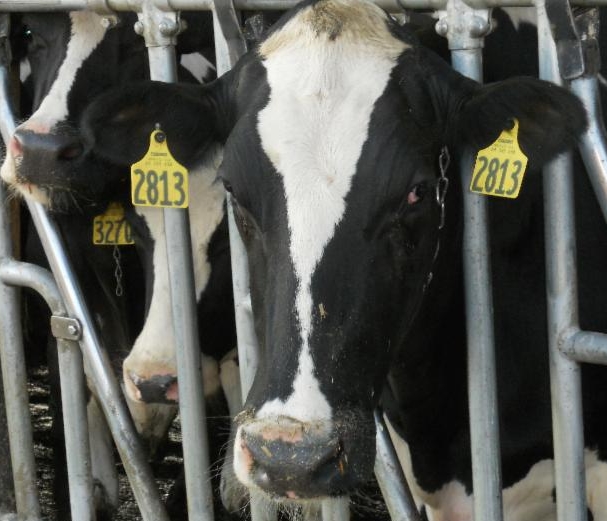 MILK COMPOSITION IS INFLUENCED BY A NUMBER OF FACTORS MILK COMPOSITION IS INFLUENCED BY A NUMBER OF FACTORS,
including dietary changes, genetics, environment, level of milk production, state of lactation, disease, season and age of the cow. According to research published by AgriLife Extension at Texas A&M, producers who pay attention to detail, keep disease to a minimum and adjust their management program as the seasons dictate, will be in the best position to take advantage of nutrition management changes to alter milk composition and improve their bottom line. Read the full study results here.
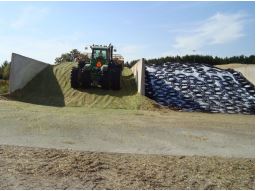 PREVENTING FEED STORAGE LOSS IS A WIN-WIN for both feed quality and water quality, according to research conducted by the UW Discovery Farms Feed Storage Leachate Project. Feed storage areas may only cover a small amount of the total acres on a farm, but their potential water quality impacts are considerable. In fact, nitrogen and phosphorus values in runoff from a one-acre feed-storage area can be similar to losses from 120 acres of cropland according to Discovery Farms data. Don't forget about this small area when looking for ways to reduce on-farm nutrient losses. PREVENTING FEED STORAGE LOSS IS A WIN-WIN for both feed quality and water quality, according to research conducted by the UW Discovery Farms Feed Storage Leachate Project. Feed storage areas may only cover a small amount of the total acres on a farm, but their potential water quality impacts are considerable. In fact, nitrogen and phosphorus values in runoff from a one-acre feed-storage area can be similar to losses from 120 acres of cropland according to Discovery Farms data. Don't forget about this small area when looking for ways to reduce on-farm nutrient losses.
There are three management practices that can minimize the amount of leachate produced from feed storage areas, including:
1) Harvesting forages at the appropriate moisture content;
2) Properly covering silage and retaining walls; and
3) Removing or covering spoil piles so waste feed doesn't have a double impact. Click here to read more.
 HOW DO ORGANIC TRACE MINERALS IMPACT NEONATAL CALVES when supplemented to the diets of pregnant cows? Research has shown that organic trace mineral (ORG) supplementation to dairy cows in substitution of sulfate (INO) sources has been associated with improvement in immune function during stressful periods for cows. However, the effect of organic trace materials on the neonatal calf during the pregnancy is unknown. Researchers supplemented 40 cows prepartum with both organic and sulfate sources of trace minerals. Results indicated that maternal nutrition with organic trace minerals could alter the neonatal innate immune response at least in part via changes in gene and miRNA expression. For details, review the full text of the study here from the November 2015 issue of the Journal of Dairy Science. HOW DO ORGANIC TRACE MINERALS IMPACT NEONATAL CALVES when supplemented to the diets of pregnant cows? Research has shown that organic trace mineral (ORG) supplementation to dairy cows in substitution of sulfate (INO) sources has been associated with improvement in immune function during stressful periods for cows. However, the effect of organic trace materials on the neonatal calf during the pregnancy is unknown. Researchers supplemented 40 cows prepartum with both organic and sulfate sources of trace minerals. Results indicated that maternal nutrition with organic trace minerals could alter the neonatal innate immune response at least in part via changes in gene and miRNA expression. For details, review the full text of the study here from the November 2015 issue of the Journal of Dairy Science.
|
 MILLENNIALS LOOK TO COMPANIES THAT VALUE PEOPLE, PLANET, PROFIT and are driving companies' business focus and work in corporate social responsibility. According to Paul Argenti, a communications professor at Dartmouth, millennials are "forcing business to do good while doing well. Companies need to rise to this challenge quickly or risk becoming an anachronism." The article cited the example of Perdue Farms, one of America's largest poultry companies, who changed business practices due to "the growing demand, particularly from millennials, for cruelty-free meat." Read the full article. MILLENNIALS LOOK TO COMPANIES THAT VALUE PEOPLE, PLANET, PROFIT and are driving companies' business focus and work in corporate social responsibility. According to Paul Argenti, a communications professor at Dartmouth, millennials are "forcing business to do good while doing well. Companies need to rise to this challenge quickly or risk becoming an anachronism." The article cited the example of Perdue Farms, one of America's largest poultry companies, who changed business practices due to "the growing demand, particularly from millennials, for cruelty-free meat." Read the full article.
 FOOD SAFETY IS AN IMPORTANT PART OF FOOD SECURITY and encounters the challenges of feeding a growing population, according to a blog post by the Chicago Council on Global Affairs. In the United States, 1 in 6 people contract a foodborne illness each year, leading to 128,000 hospitalizations and 3,000 deaths. On a global scale, the numbers are more daunting. Six hundred million people contract a foodborne illness each year, with 420,000 cases ending in death. And, children are impacted the most. Children under five are only 9% of the world population, but make up 30% of foodborne illness deaths. In the interconnected food system, an issue in one plant or country can quickly spread locally and around the world. Read the full post here. FOOD SAFETY IS AN IMPORTANT PART OF FOOD SECURITY and encounters the challenges of feeding a growing population, according to a blog post by the Chicago Council on Global Affairs. In the United States, 1 in 6 people contract a foodborne illness each year, leading to 128,000 hospitalizations and 3,000 deaths. On a global scale, the numbers are more daunting. Six hundred million people contract a foodborne illness each year, with 420,000 cases ending in death. And, children are impacted the most. Children under five are only 9% of the world population, but make up 30% of foodborne illness deaths. In the interconnected food system, an issue in one plant or country can quickly spread locally and around the world. Read the full post here.
FDA SEEKING INPUT ON WHAT "HEALTHY" SHOULD MEAN as part of an effort to consider new regulations on food labeling and recommendations to consumers. The review comes as scientific thinking is changing about fats and the types of vitamins and minerals that consumers need most. New science is showing that total fat is less important than the types of fat that people consume and that Americans aren't getting enough potassium or vitamin D. Read the AgriPulse article and FDA information.
|
For your business mind...
 STANDARD OPERATING PROCEDURES ARE POWERFUL TOOLS STANDARD OPERATING PROCEDURES ARE POWERFUL TOOLS to ensure that all employees are working toward common goals and following the same steps for completing tasks on a dairy farm. Well-written Standard Operating Procedures (SOPs) provide direction, improve communication, reduce training time, and improve work consistency. The process of writing SOPs can also be a valuable exercise for managers, workers and advisors to work together for a common benefit. There are multiple formats for writing Standard Operating Procedures, determined by the number of steps, how complicated each process is, and how many decisions an employee must make. A guide for writing SOPs is
available here, provided by PennState Extension.
BUILDING A TEAM OF EXPERTS IS ONLY THE FIRST STEP in creating a culture of teamwork on your farm. How can you ensure that the top talent you've assembled will work together to achieve great things? Researchers at Google conducted a study of more than 180 active teams within the company and found that how team members interact, structure their work and view their contributions led to the most successful teams. They found five key dynamics of successful teams:
1) Psychological Safety: Can we take risks on the team without feeling insecure or embarrassed?
2) Dependability: Can we count on each other to do high quality work on time?
3) Structure and Clarity: Are goals, roles and execution plans on our team clear?
4) Meaning of Work: Are we working on something that is personally important for each of us?
5) Impact of Work: Do we fundamentally believe that the work we're doing matters?
Click here to read the full article and see an infographic of their results.

CLEANING OUT AND ORGANIZING YOUR COMPUTER can help free up storage space, speed up processing time and improve your computer's overall performance. If you don't organize and discard files regularly, there is a good chance your hard drive is bogged down with downloads and unnecessary duplicate files. There are a number of programs and apps available to clean out, sort, and organize your files, as well as back up your system efficiently and effectively. Find a list of resources
here
.

BOOK REVIEW: LEAD INSIDE THE BOX: HOW SMART LEADERS GUIDE THEIR TEAMS TO EXCEPTIONAL RESULTS.
Every employee is different, but unfortunately many leaders use a one-size-fits-all approach to leading. In doing so, these otherwise well-intentioned leaders are working harder than they should, while not getting all they could out of their teams. Lead Inside the Box gives leaders a way to get the best out of their teams by focusing their energy where it will make the biggest difference. It teaches leaders how to figure out where they are currently investing their time and energy across their teams, identify the unique leadership needs of each team member, and make smarter decisions about how and where to invest their time and energy to get the best results out of everyone.
WORDS TO LIVE BY. . .
"An organization's ability to learn, and translate that learning
into action rapidly, is the ultimate competitive advantage." --- Jack Welch
|
|
A BIG Thank You...
TO OUR PDPW SPONSORS who
support continuous improvement for the dairy industr
y.
T
hey believe in producer leadership and place a high value on lifelong
education for those involved in the dairy industry. We deeply respect their commitment to PDPW and the members we have the honor to serve. It is by this partnership that we c
ontinu
e to build a strong industry filled with capable professionals. Click
HERE
to see a list of our sponsors. If you interact with any of these companies, please thank them for supporting PDPW!
If you or a company you know is interested in participating as a sponsor, please contact one of our team members at [email protected] or call 800-947-7379.
|
|
PDPW Education Calendar
|
November 3
|
Dairy's Visible Voice Training - Media Training Workshop: Wisconsin Dells, Wis.
|
|
November 9
|
World Class Webinar - "Solving Common Challenges to Farm Transfers": Online |
| November 9-10 |
Nutrient Innovation & Dairy Technology Tours: bus departs from Chilton, Wis. |
| December 1 |
Dairy's Visible Voice Training - Social Media Strategies: Baraboo, Wis.
|
|
December 6, 7 & 8
|
Herdsperson Conference: Chilton, Eau Claire and Fennimore, Wis.
|
|
December 7
|
World Class Webinar - "Your Farm Succession Plan is a Living Document": Online
|
| January 12 |
Dairy's Visible Voice Training - Crisis Management: Baraboo, Wis. |
| January 17-19 |
Managers Academy: San Diego, Cal. |
January 31,
February 1,3 |
Dairy Human Resource Conference: Oshkosh, Wis. Eau Claire, Wis. Orange City, Iowa. |
| February 16 |
Dairy's Visible Voice Training - Effective Leadership: Baraboo, Wis. |
| March 14-15 |
Cornerstone Dairy Academy: Madison, Wis. |
| March 15-16 |
Business Conference: Madison, Wis. |
| April 6 |
Dairy's Visible Voice - Proactive Communication: Baraboo, Wis. |
| April 22-23 |
Youth Leadership Derby: Colby, Wis. |
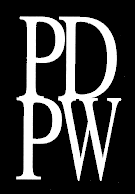
STAY CONNECTED
800-947-7379
|
|
|
|
|